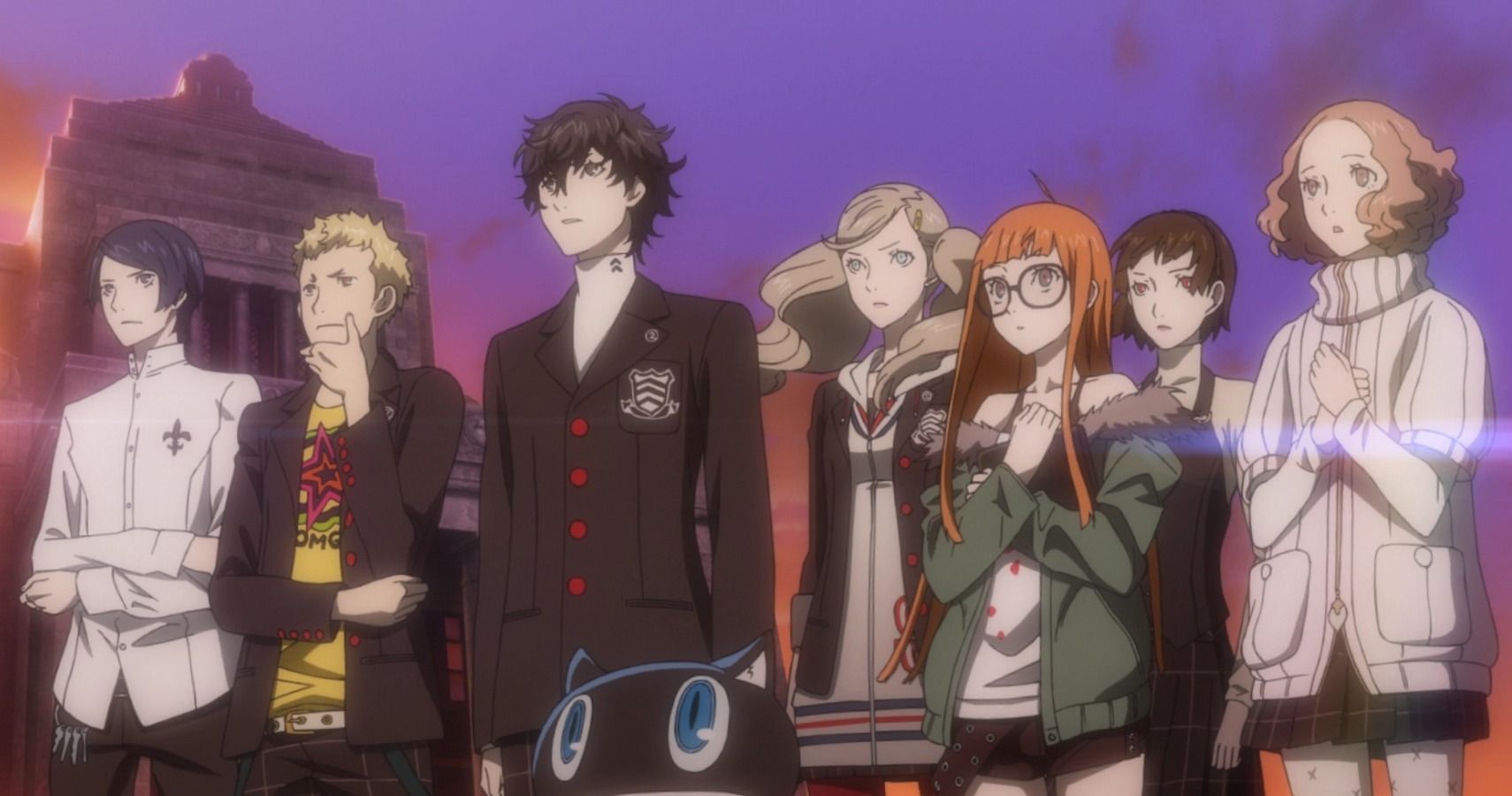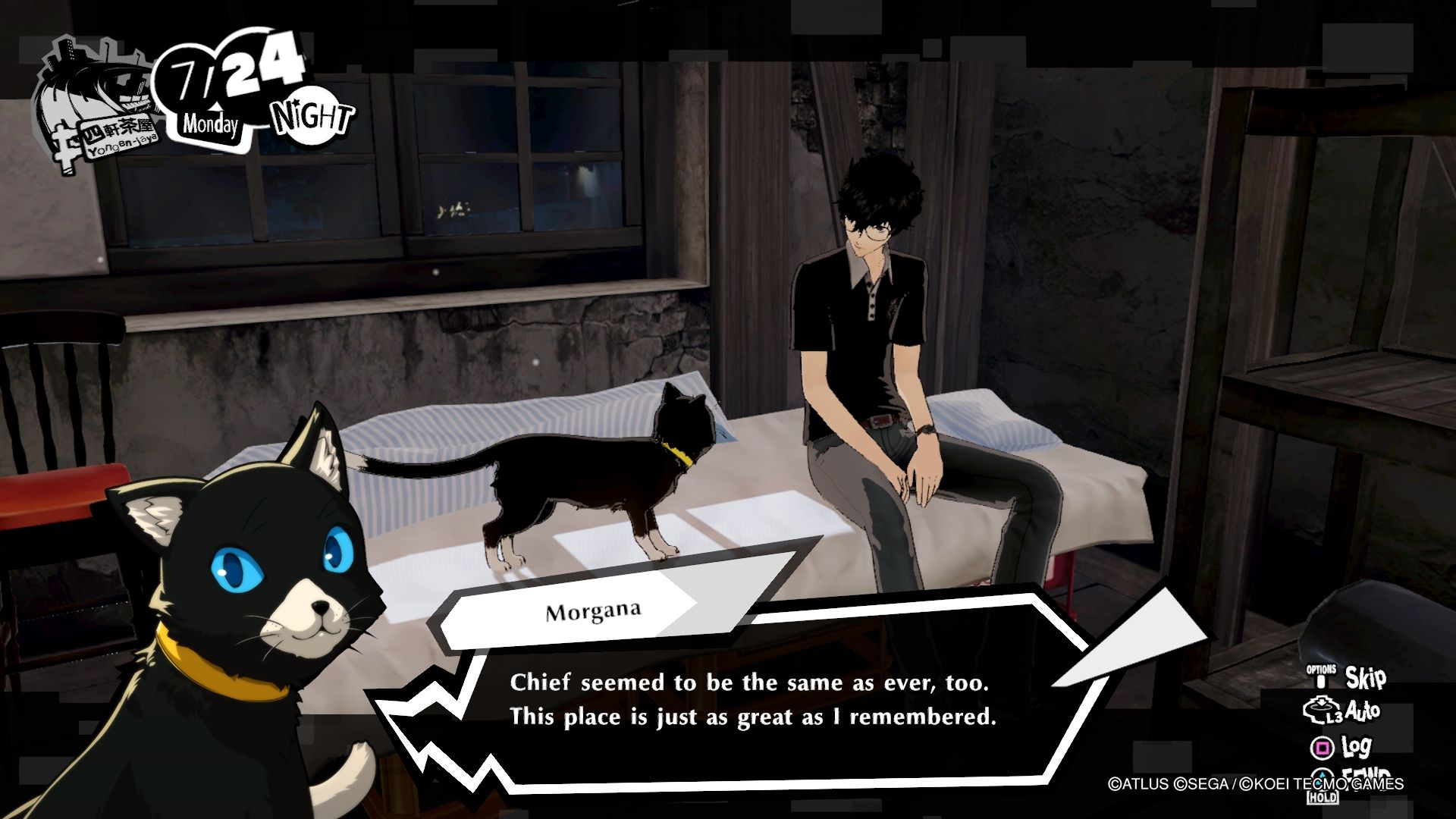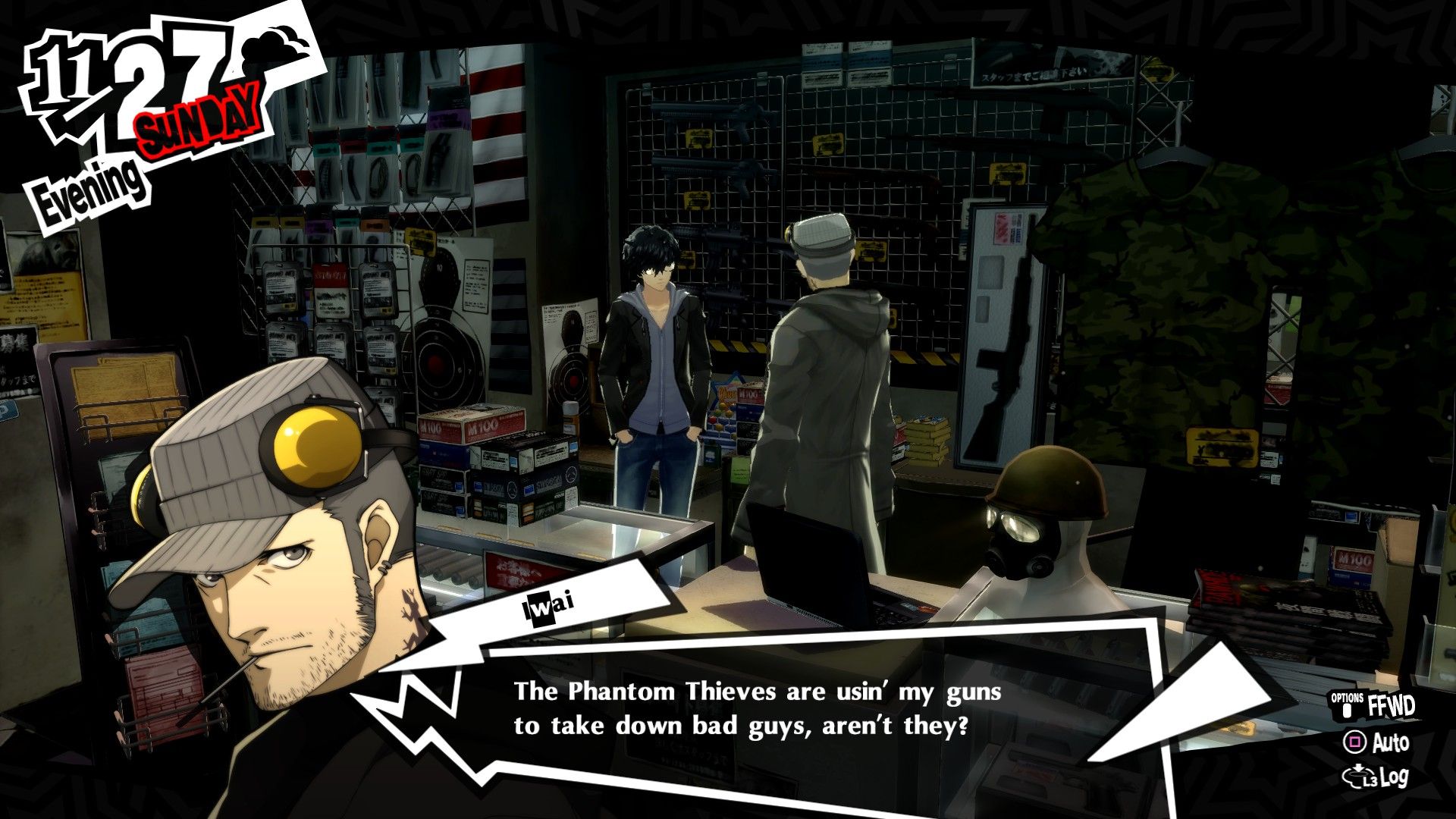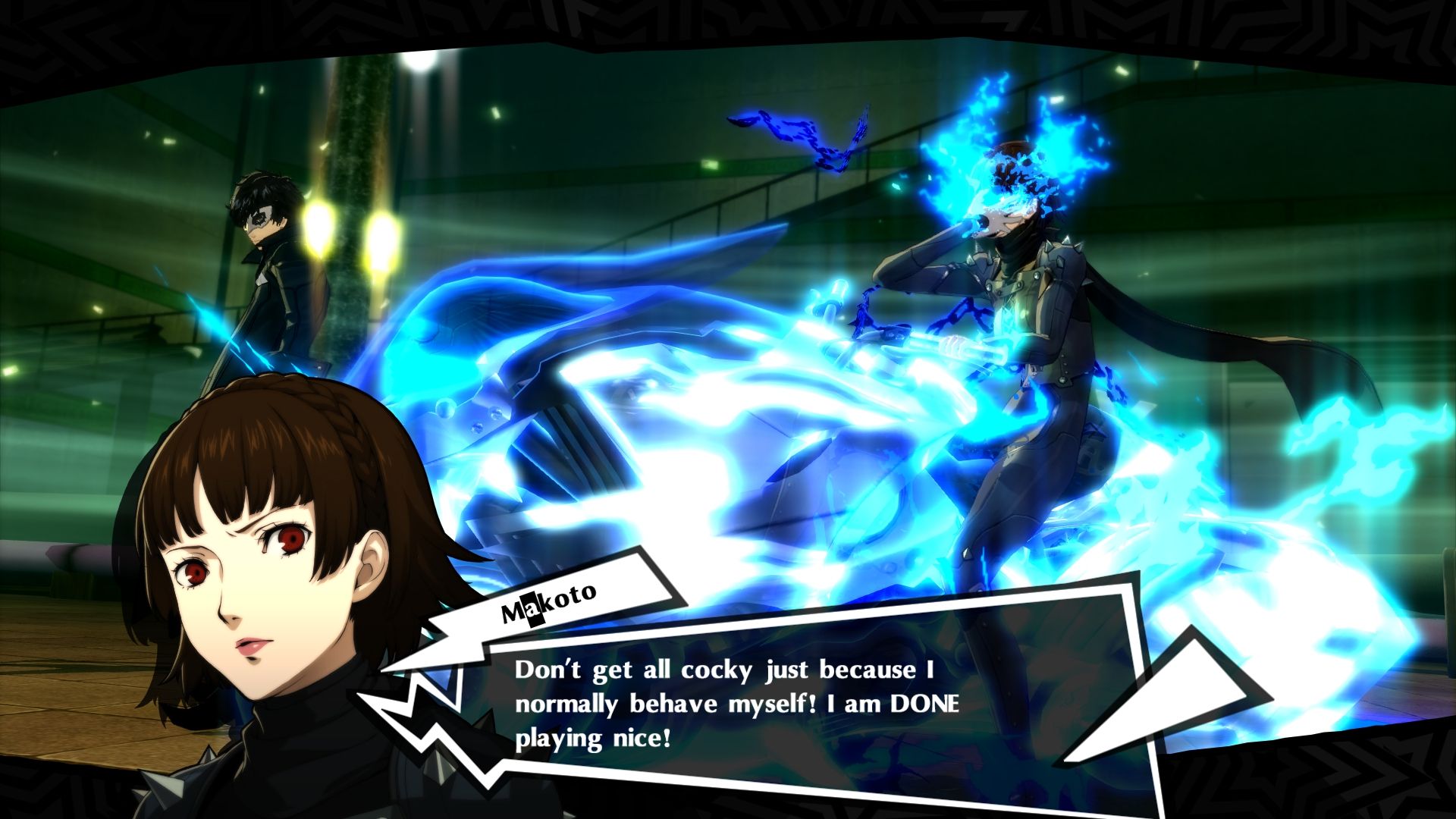While most people maintain at least some sort of interest in online, games-as-a-service titles, my sights are still firmly set on single-player experiences. I’m all for intriguing shooter mechanics and robust combat systems, and I love a good puzzle as much as the next person. Ultimately, though, what cements a game as excellent for me usually has a lot to do with its characters, and Persona 5’s confidants are some of the best ones I’ve ever encountered.
I’ve been playing Persona 5 Strikers recently and it feels just like coming home after a long trip away. It’s warm, and comfortable, and it feels as if nothing has changed. The Sayuri hangs proudly on the wall of Leblanc, while Joker’s room is the same as it always has been - Morgana even says, “This place is just as great as I remembered,” and I’m inclined to agree.
But the most affecting aspect of Strikers for me, so far, has been the fact that the Phantom Thieves aren’t the same. Yes, Yusuke still talks about art, and yes, Ryuji still says “shit” a lot. But on top of that, these people feel as if they’ve really grown over the months between the end of Persona 5 and the beginning of Persona 5 Strikers. In fact, this massive, largely unexplained chunk chockablocked in between each game somewhat resembles the weird pandemic cloud that has inadvertently put all of us in the exact same position.
The characters in Persona 5 all undergo massive growth throughout the course of the game. Each and every one of them is tasked with overcoming immense difficulties in order to become their true selves - by the end of the story, none of them look anything like who they were when you first met them. This extends outside of the Phantom Thieves, too. I’m thinking of Iwai’s heartwarming attempts to protect his son, or Takemi’s endeavors to cure a patient she was led to believe had died. In a way, the non-Phantom Thief confidants are actually quite similar to the characters in Yakuza’s substories: ordinary people who, upon closer inspection, clearly contain multitudes.
What Persona 5 does to really master this structure is segment itself in a way that makes each individual segment count. On one hand, you need to actively pursue each character’s specific story by electing to spend time with them, gradually progressing their arc in tandem with the core narrative. On the other, you need to manage your time as efficiently as possible - if you’ve already got max knowledge, there’s no point in visiting the library and wasting an afternoon when you’ve only got finite slots for allocating activities.
And so there’s this sense of urgency that comes with getting to know each character. Fortunately, any semblance of said urgency dissipates into thin air while you’re actually spending time with someone. You anxiously carve out slots in your schedule to work a shift in Iwai’s shop, or go for a run with Ryuji, although once you’re actually there, doing it, everything becomes much slower. The absence of urgency is what ultimately compounds the meaning of learning about someone, becoming closer to them, and establishing a genuine bond that transcends the artifice of regular dialogue and story beats. Lots of RPGs have characters with their own individual stories, but precious few manage to tell them with as much finesse as Persona 5. Yes, I am calling Ryuji stuffing his face with ramen finesse, because that is what it is.
Don’t get me wrong, I love all of the cutscenes and dialogue in the game as well. Watching the gang blaze across the scorching deserts surrounding Futaba’s Palace in Morgana-but-he’s-a-van-now is great, and keeping non-party members in the loop during essential conversations prevents the Phantom Thieves from ever feeling excessively insular. But the real kicker is the social link structure that connects you, specifically, to each of them. It’s the fact that you devote time to your friends and are rewarded for doing so - not with some kind of item, or skill, or anything else like that, but because of the fact that your friendship is mutual and kindness is reciprocated.
So, when there’s this great big gap between the end of Persona 5 and the beginning of Persona 5 Strikers, all of what I’ve mentioned above comes surging back into your head like an undammed river. This is largely why Persona 5’s characters have played such a huge role in my life over the last ten months. As quite an extroverted person, not being able to see friends during each successive lockdown period has been tough. Persona 5’s confidants have offered a much-needed bandaid for that, feeling far more like actual pals than video game characters you talk to for bonus rewards or any other overtly gamified gain. Everything about the way you engage with them feels natural, to the extent that blowing someone off because you need to boost your Charm at the bathhouse on Tuesday makes you feel like a dick. That last part is far more important than most people realize, because it captures the entire experience of being mates with someone - sometimes you have to be a bit of an arse.
No other characters have been able to achieve this kind of resonance with me over the past year. While I’ve certainly loved lots of games and have been impressed with a wide range of different characters, Persona 5’s cast has managed to transcend any conventional understanding of fiction. This might sound a bit hippyish, but they’ve exemplified a kind of hope I didn’t know I needed. It’s like concrete proof that your friends will always be your friends, regardless of whether or not an impenetrable pandemic decides to park itself between you for a year. Because once you succeed in eventually navigating around it… Well, everything is the same as it was, except for you and everyone around you.
This reminds me of that quote from Yeats’ Easter 1916 - “... changed, changed utterly / A terrible beauty is born” - except it’s not really terrible. No matter what brainworms manage to wriggle into our locked-down skulls, change is inherently a positive thing. So yes, change will happen as it has been happening ever since the minute the world shut down, and will continue to happen from the moment it opens back up until the very end of time - as Persona 5 singer Lyn might say, “Life Will Change.” Persona 5’s characters, for me, offer a strange but accurate means of representing all of these phenomena at once. As I mentioned earlier, Strikers feels like coming home - but it also feels like moving away, and going on a new adventure, without ever compromising its own homeliness. As an artefact, it’s something that is both warming and propulsive, like how hot air rises towards the sky, and I think that’s refreshingly optimistic in a way I didn’t expect it to be. I know that sounds pretentious, but it’s true. Shut up.




